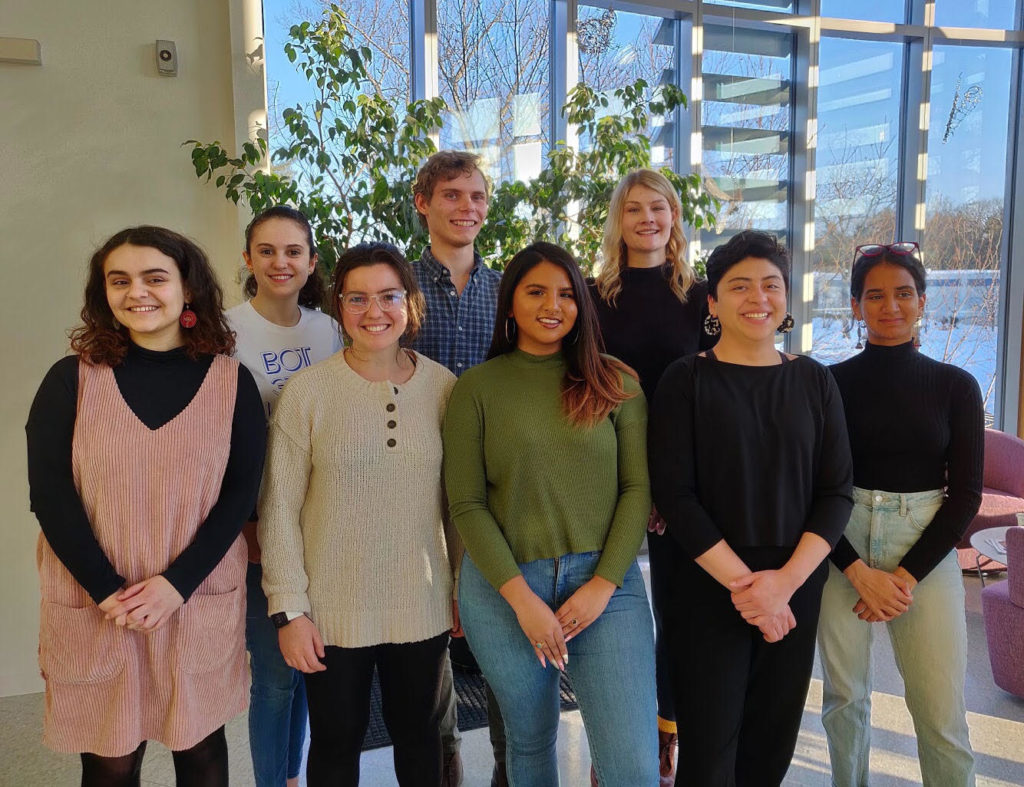Curating great ideas
Student-run forum creates laboratory for innovation
Each presentation lasts 10 minutes but represents months—or more—of preparation. That work will be evident when WheaTalks returns for its ninth annual event on Wednesday, April 10 at 6 p.m. in Hindle Auditorium.
The forum, organized and sponsored by the Wheaton College chapter of the student-run Roosevelt Institute, is intended to encourage conversation on innovative ideas that are generated by members of the campus community. As always, it will tackle a wide range of topics from the cultural origins of climate change denialism to the impact of sleep deprivation in disadvantaged communities.
“WheaTalks is an idea space,” said Pia Parisi-Marcoux, who is part of the institute’s 10-member executive board organizing the event. “It’s a space that is dedicated to sharing ideas and enriching intellectual discourse at Wheaton. I see it as a way to get the conversation started and to identify new interests.”
What’s different about this year’s installment is that it features an outside speaker, public health scholar and AIDS activist Gregg Gonsalves, who is an assistant professor in the Department of the Epidemiology of Microbial Diseases at Yale School of Public Health and an associate professor at Yale Law School. Selected as a 2018 MacArthur Fellow, Gonsalves also co-directs the university’s Global Health Justice Partnership, working at the intersections of health and human rights and social justice.
Roosevelt Institute member Thomas Fenu ’19 said, “Welcoming a MacArthur Fellow to campus to participate at WheaTalks this year is a distinct privilege. But to be quite honest, I do not think that this will change the nature of the event. WheaTalks is a platform that gathers us around new ideas that are inherently bigger than the Wheaton bubble to begin with.”
Inspiration to develop the program came, in part, from the TED Talks phenomenon. The motivation to make it happen comes from the students—both the organizers and the presenters. The Roosevelt Institute invited applications to participate in the forum at the start of the semester and reviewed nearly 20 proposals before selecting eight for inclusion in this year’s event.
Once presentations are selected, the work begins. Roosevelt Institute members assign two-person teams to meet regularly with each presenter, offering a critical ear to sharpen each person’s presentation.
“The part I enjoy the most about being involved with WheaTalks is actually seeing the talks come together. What the audience sees the night of the event is the culmination of a couple months worth of work between the exec board and the actual speakers,” Fenu said. “Observing this transition between the beginning, when the speakers submit elevator-pitches of their ideas, and the actual night of the event never ceases to leave me in awe.”
Shruti Sudarsan ’19 has experienced the process from both sides and said that it’s a learning experience for all. “Mentoring other speakers has been a great learning experience for me as I have been able to hear about their passion projects,” said Sudarsan, who will be sharing insights on anti-corruption efforts that she gained from an internship at Cornell and an independent study this year with Professor of Political Science Gerard Huiskamp.
“For as long as I’ve been involved with Roosevelt, WheaTalks has been one of our proudest undertakings,” said Faheem Dyer ’19. “The ideas and passion of the speakers make the event what it is, but the work that goes into organizing and rehearsing is what ensures those ideas are delivered with the smoothness and polish they demand.”
Ultimately, WheaTalks aims to take learning outside the classroom and give all students an opportunity to discover new interests, Parisi-Marcoux said.
“As students, we are only at Wheaton for four years. We have to absorb what we can, as much as we can, and then take it and do something cool.”

